What’s your coping style?
To properly manage stress, start by assessing your coping tendencies.
The last two months of the year can be stressful. It’s important to get your coping plan in order.
For many cultures, November and December are considered the holiday season. Although important to reconnect with loved ones, this time of year also comes with lots of extra activities that take their toll on our time and energy.
Add COVID-19 to the mix, and we’re also having heated discussions on how to safely conduct get-togethers, or whether to gather at all.
The time is right to reevaluate whether you are coping appropriately.

There are different coping styles. This post will help you self-assess and self-reflect on whether you’re doing it right.
But first, consider taking my assessment, “What Is Your Coping Style?”
This free, nine-question assessment will automatically generate your scores and a comparison to your peers.
3 Different Coping Styles
1. Problem-Focused Coping
Problem-focused coping entails attempting to solve the source of the problem. The goal is to stop the stressor altogether.
The challenge, though, is that engaging in such behaviors can be hard, time-consuming, and even introduce new types of stress. Thus, problem-focused coping is one of the productive coping styles, long-term fix, but it takes effort.
Examples
- Taking stock of the situation and coming up with a plan.
- Focusing one’s efforts and attention on doing things that improve the situation.
- Seeking out resources (e.g., people, processes, services) that can help solve the issue at hand.
Read Signs You Use Busyness As A Coping Mechanism (& How To Slow Down)
2. Emotion-Focused Coping
Emotion-focused coping entails managing the emotions associated with the situation. The goal is to minimize the negative physiological and psychological reactions stemming from the stressor.
The challenge here is that emotions can be hard to control. It’s worth the effort, though, because you’ll be more successful at problem-focused coping when you’re emotionally balanced.
Emotion-focused coping is not a long-term fix, because it doesn’t solve the source of the problem, but it’s an important part of the coping process.
Examples
- Seeking out social support by finding someone to talk to about how you’re feeling.
- Pinpointing, out loud or in writing, exactly what emotions you’re feeling.
- Reminding yourself that you’ll be okay, things could be worse, or that you should be appreciative of what you have.
- Reappraising the stressor as an opportunity to learn, grow, or develop.
Read Coping Mechanism of the Zodiacs: How Each Sign Tries To Escape Reality
3. Avoidance-Focused Coping
Avoidance-focused coping entails distancing oneself from the stressor or the feelings of stress. This is an unproductive form of coping styles. Unfortunately, people do it all the time.
Distracting ourselves from how we are feeling, or refusing to think through how to make things better, only delays the stressor. When it does resurface, it’s typically worse.
Examples
- Distracting yourself with something pleasurable, like entertainment (e.g., social media), sleep, or substances (e.g., drugs, alcohol).
- Convincing yourself that everything will be fine and work itself out.
- Acting as though nothing really happened.
- Telling yourself you’ll deal with it when the time is right.
Read How To Prevent Burnout: 13 Signs You’re On The Edge
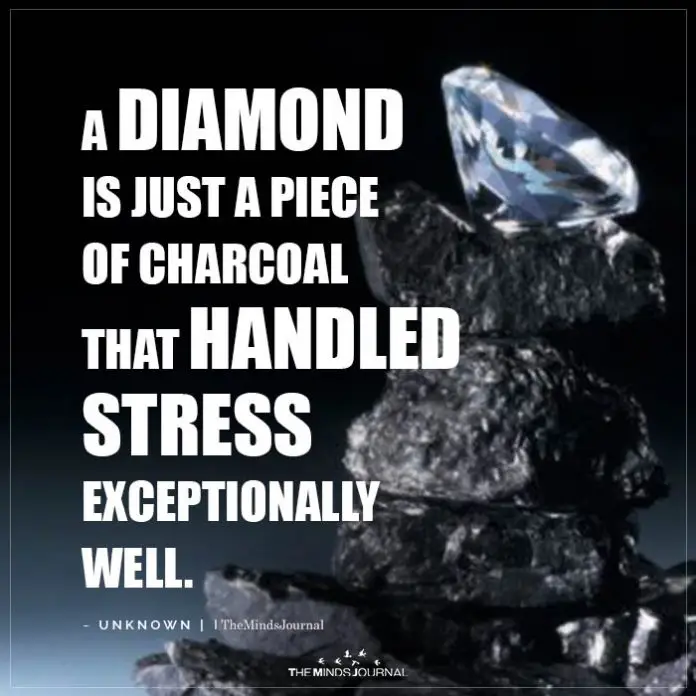
The Right Way to Cope with Stress
Given what we know about stress and coping styles, here’s what you should or shouldn’t be doing:
- Don’t avoid stress. If you’re experiencing stress, your brain and your body are trying to tell you something. Avoidance-focused coping doesn’t work.
- Express your emotions. Seek out people or mechanisms (e.g., journaling, meditation) that allow you to acknowledge and accept your feelings. Emotion-focused coping is part of being human. Let it happen.
- Start getting organized. Outline the problem, start brainstorming ideas, talk to others to get new perspectives, and then get to work. When it doesn’t work out as planned, iterate, and try again. Problem-focused coping is the primary solution to long-term stress reduction.
References
Written by: Scott Dust
Originally appeared on Psychology Today
Republished with permission.
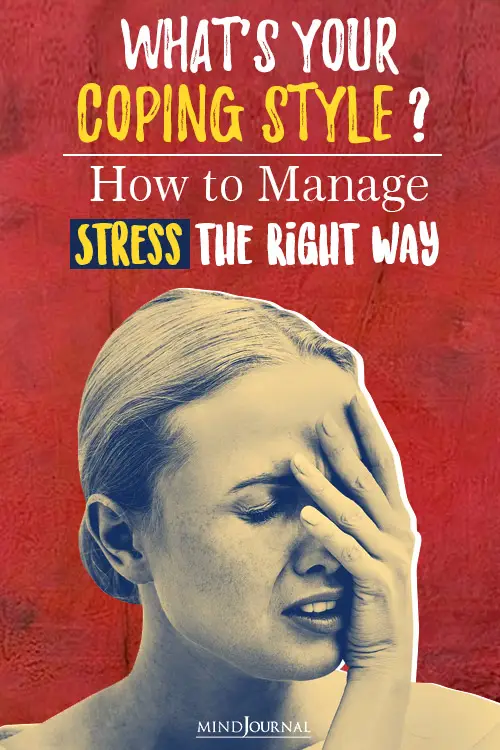
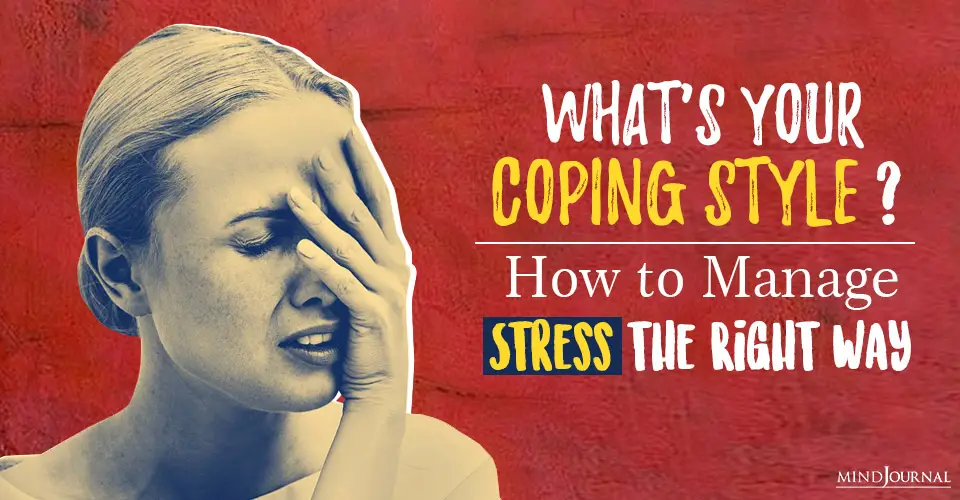

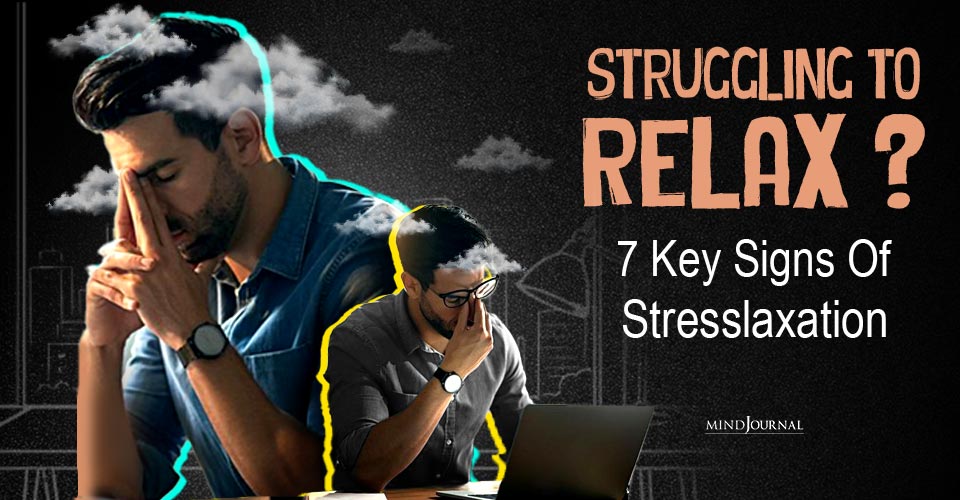

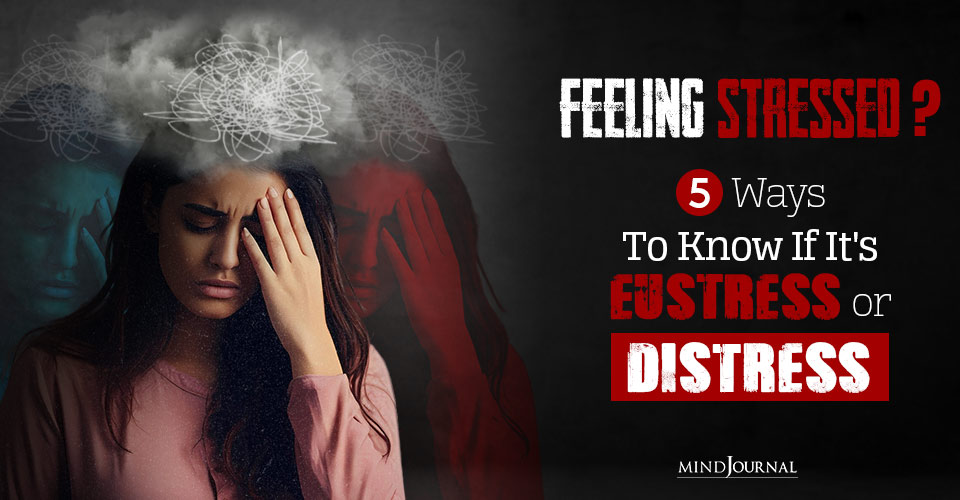
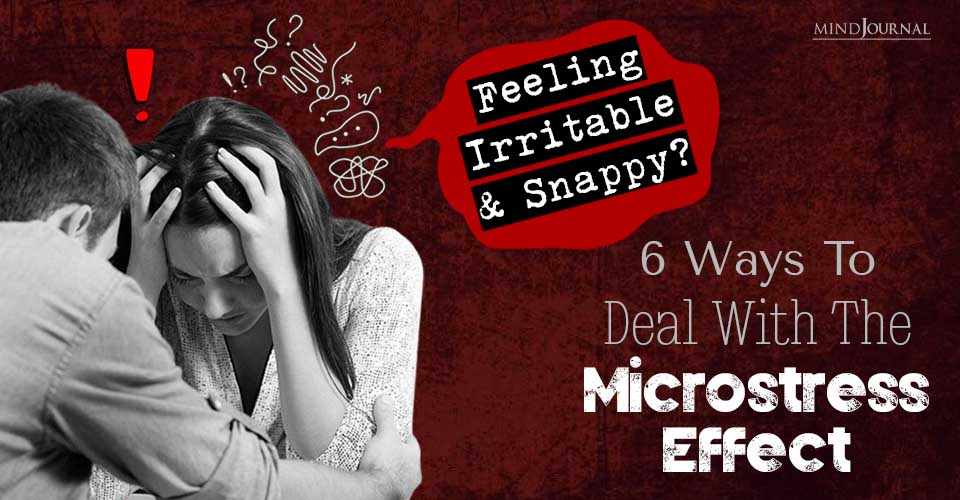


Leave a Reply
You must be logged in to post a comment.